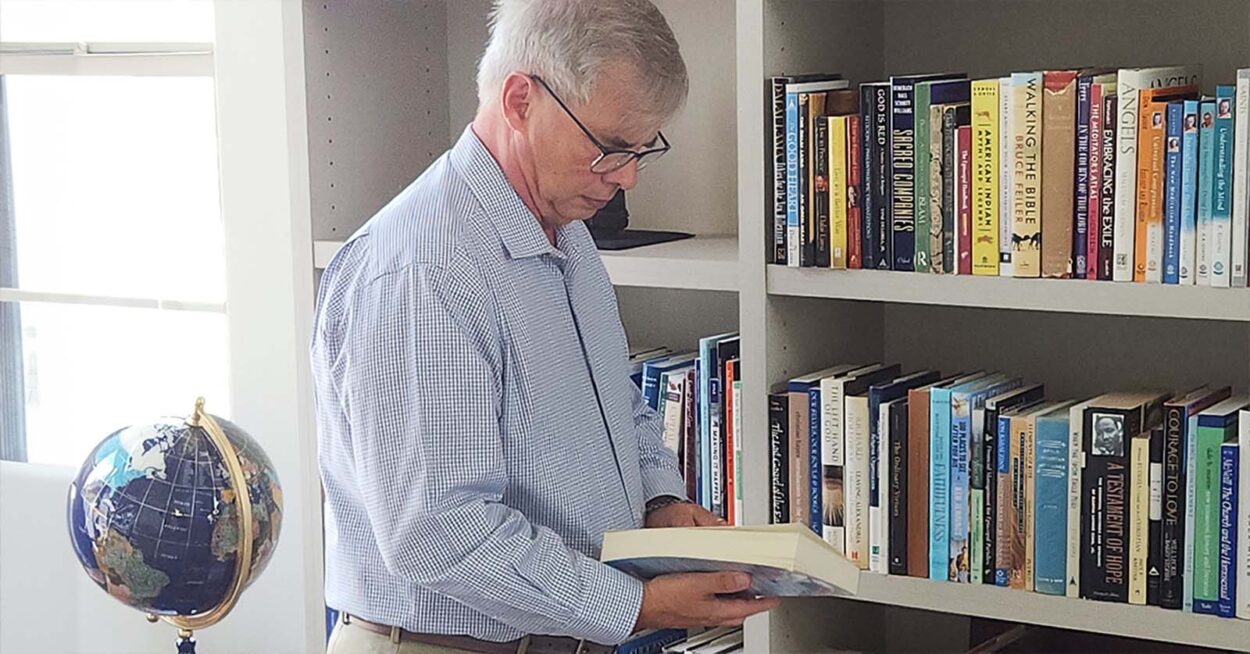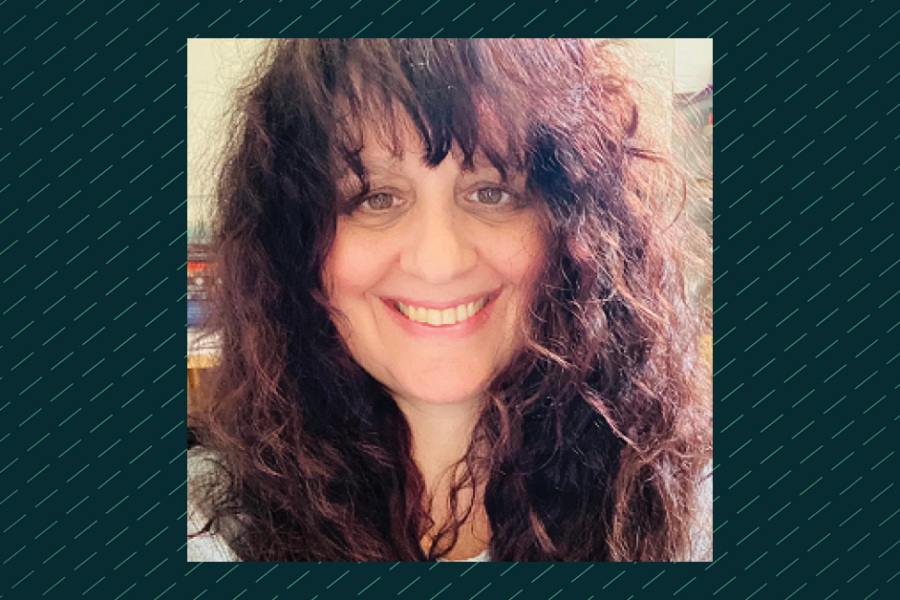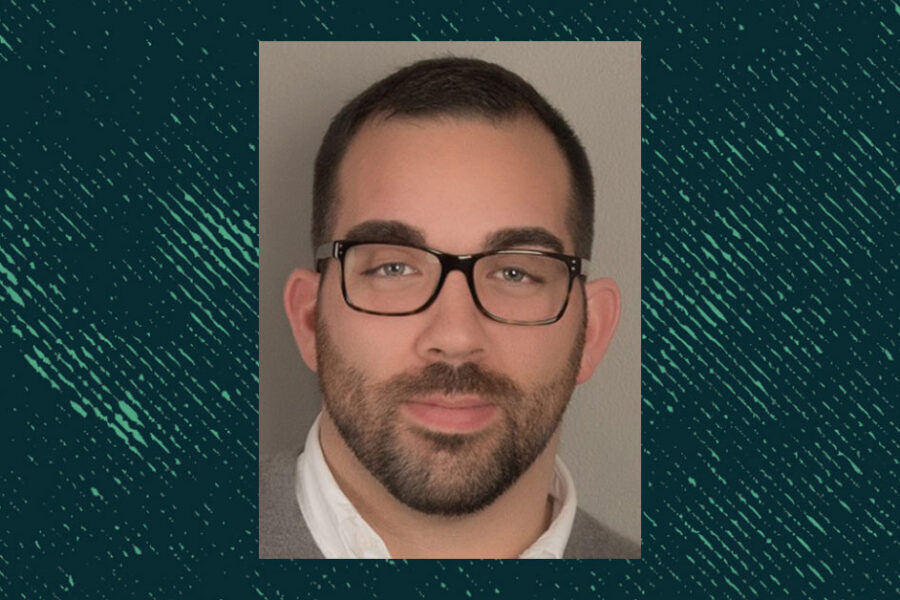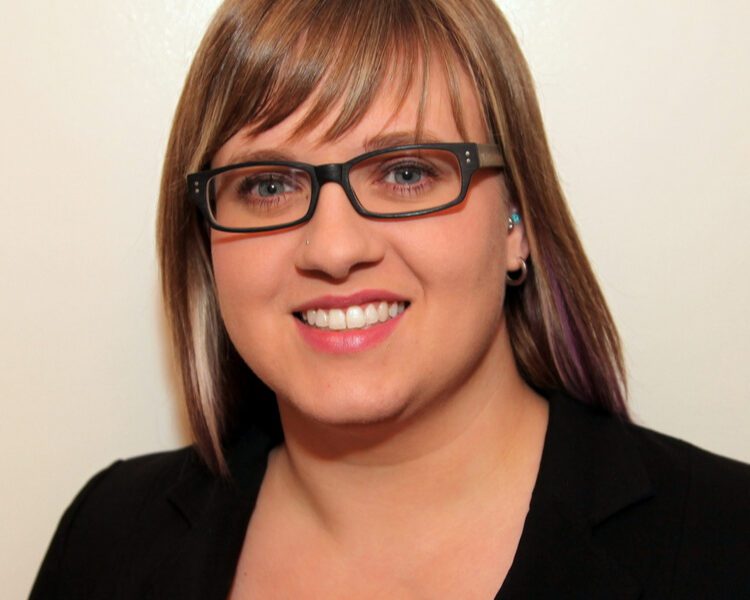“How can there be such a thing as a nonprofit in a capitalist economy?” asks David Norgard. Nonprofits are often positioned as the answer to a flawed economic system, a way to consolidate and use resources to help people. “They exist to moderate the capitalist economy, to be innovative, to critique it, to help folks see other avenues of fulfillment in life, and the community,” Norgard says. But they still exist within an economic system that is bent towards extraction.
It’s a bold question as it stands, but it’s even bolder considering it’s central to a class Norgard teaches in Antioch’s MA in Nonprofit Management and in the MBA’s Nonprofit Leadership Concentration. It could be taken for granted in this setting, in which students are often already working in a nonprofit, that the organizations obviously produce good. However, Norgard doesn’t shy away from big questions.
In “Democracy, Capitalism, and the Nonprofit & Voluntary Sector,” he invites his students to go beyond the nuts and bolts of project management or budgeting, things that are standard for management courses. In this class, they’re given the opportunity to consider deeper questions about the nonprofit sector. They have the chance to grapple with why nonprofits are necessary in the first place and what their potential is in the given social, political, and economic frameworks found in the United States.
Having the ability to evaluate nonprofit agencies in present day contexts is a unique skill that is rarely central to management training. Norgard’s focus on themes such as capitalism, race, gender, religion, democracy, and community means students get to evaluate the impacts and internal workings of organizations differently.
“Students get to think about questions like ‘what is the meaning of all this?’ ‘What is the context?’ ‘Why do these organizations exist?’” Norgard says. And perhaps most importantly, as he puts is, ”Why should we even care?’”
Different Paths to Make a Difference
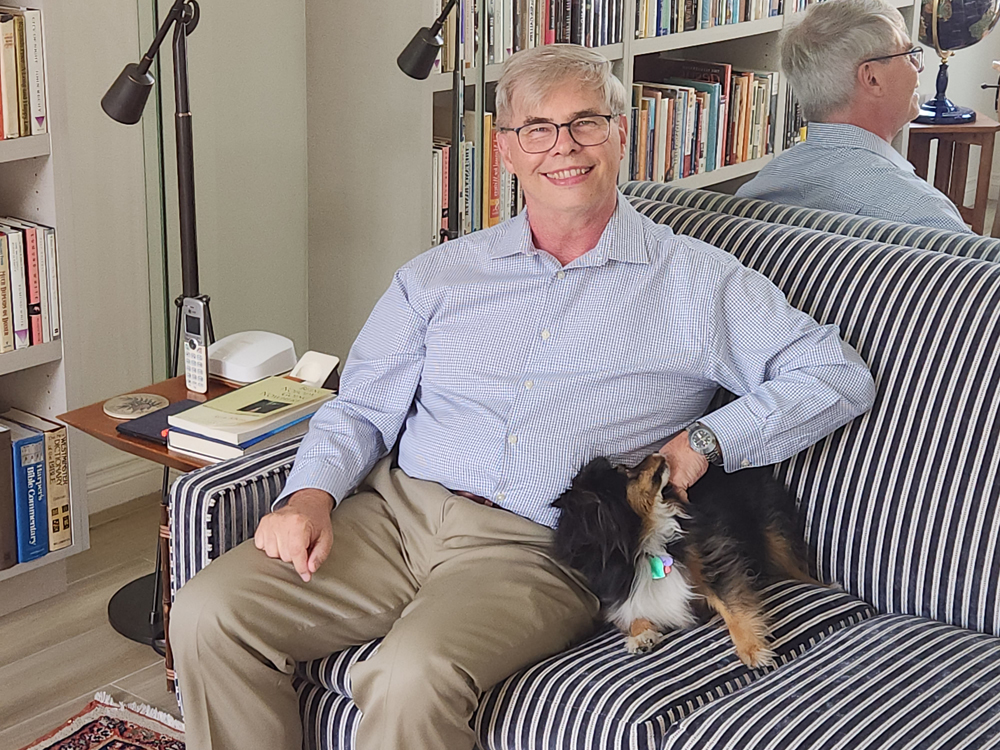
Questions like these are important to Norgard because he, in fact, cares very much about the best ways to help people. Besides a brief stint working in a restaurant in high school, Norgard’s professional life has been centered in the nonprofit sector, but he took a different path than many people. This is because the acts of service that are often a part of the nonprofit ethos connect to another calling – the priesthood.
“I saw priesthood as an attractive profession that was, at least in the world I grew up in, very well respected and one that helped a lot of people,” Norgard says. He decided that he wanted to enter the ministry at an early age and went into college with that in mind. He first attended Augsburg College, in Minneapolis, Minnesota and then Yale Divinity school. While studying for his Master of Divinity degree, he founded the Yale Gay and Lesbian Cooperative, a cross-campus student advocacy group that’s still active today.
As an Episcopal priest, he served in parishes in New York, New Jersey, and California, and he led one in California. Norgard connected the ethos of the church to the needs he saw in society and provided executive leadership to several faith-based nonprofits. It’s where he got the experience to bring to his own consulting practice and eventually Antioch, where he helped design the original Nonprofit Management Program before being invited to teach in it.
Designing a Course that Asks Big Questions
Sometimes changing the name of something can completely reframe the way we think about that thing. That’s what happened when Norgard changed the name of one of his classes to “Democracy, Capitalism, and the Nonprofit & Voluntary Sector.” When he started thinking about those large concepts, he began to reconsider the learning outcomes. That snowballed into a total rewrite of the course. “New number, new title and description, new outcomes, new syllabus, new everything,” Norgard says. But his fundamental purpose has remained the same. “I wanted this course to be different compared to standard courses offered in a management or business program,” he says.
And it is. The focus on new frameworks like capitalism and altruism helped expand former student Sokthea Phay’s perceptions of what’s needed to work in the field. “Understanding all the theories that construct the formation of nonprofits is critical and has been overlooked,” Phay says. “Many nonprofit leaders would need to understand altruism before they jump right into forming the nonprofit.”
The class is philosophical and thought provoking in nature. Another former student, Morgan Whitehead says, “I found the course profoundly stimulating.” This is because by focusing on the underlying purpose of the nonprofit sector students are driven to consider what they’re a part of.
“Without nonprofits, our democracy itself would be endangered,” says Norgard. One reason this is true is because in an economic system like capitalism, where profit is the driving motivator, people who don’t contribute to the market are not taken care of. “Capitalism inevitably allows some to exploit and subjects others to exploitation,” Norgard adds.
“One of the underlying purposes [of nonprofits] is to be a critique on society, to be advocates for a better way, towards a greater degree of justice,” Norgard says. It is a model that has the potential to move us towards a greater degree of compassion in our society and towards a fuller measure of healing.
Using Personal Experience for Better Advocacy
It’s challenging to critique the work one is actively doing, but Norgard works to make a welcoming space for difficult conversations in the classroom. “We have conversations about being efficient as an organization while maintaining the integrity of the truth we are advocating for when it’s not always a truth that’s accepted by everybody,” Norgard says. If something was already broadly accepted, it wouldn’t be necessary to advocate that people and systems change to rectify inequity or injustice.
Norgard uses George Floyd’s murder and the demands for systemic change and dismantling of white-supremacist power structures that followed as an example of the challenges of advocacy. “There’s going to be resistance, and the question is how do you handle that resistance?” he asks.
In the first few weeks of “Democracy, Capitalism, and the Nonprofit & Voluntary Sector,” Norgard provides historical context for the systems, but in the weekly discussions in the class, students talk about what’s happening at their work, in their lives, or in their community. “It’s all tied to the contemporary context in which we’re living,” Norgard says. “And that’s part of what makes this course cool in my mind.”
As the class thinks about contemporary issues in society that directly impact them, Norgard feels it’s necessary not to shy away from using personal examples to connect with students. “I don’t censor myself in that regard,” Norgard says. This openness allows students to feel comfortable sharing their experiences as well, thus creating a community of “comrades in arms,” as Norgard puts it. “It’s a support. It’s a comfort,” he says. “And it’s a challenge, in a good way.”
Learn more about the Master of Arts in Nonprofit Management
Antioch University is a nonprofit institution that has prioritized making a difference for nearly 170 years. The Master of Arts in Nonprofit Management (MANM) program is within a nonprofit institution, so we live the lives of nonprofit professionals in multiple ways every day. Antioch’s MANM is designed for working professionals who are ready for the next step in their careers.

